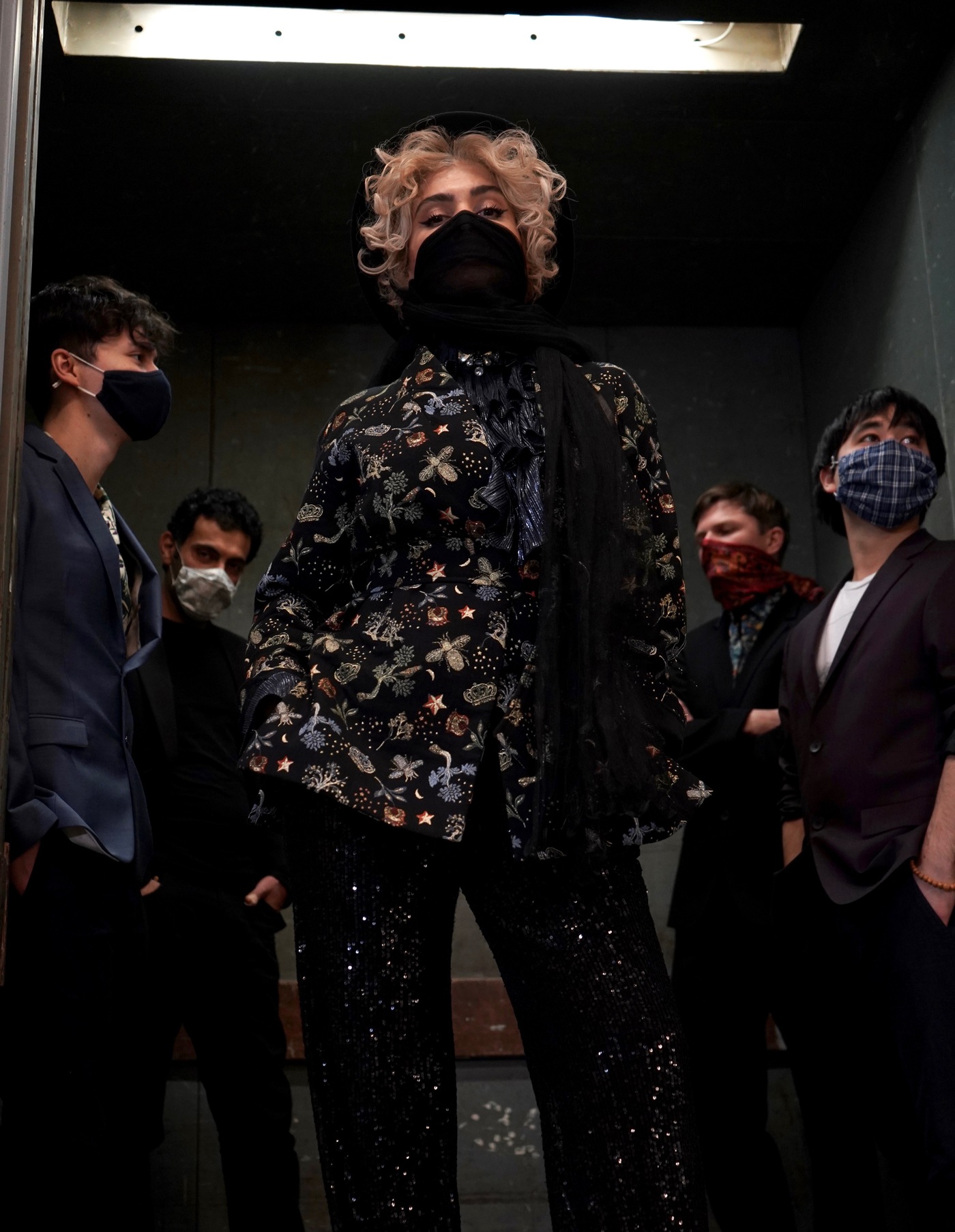Born in Sanandaj, Kurdistan, Iran; lives and works in Berlin, Germany.
Hani Mojtahedy is a renowned Kurdish singer whose work combines traditional Persian music, contemporary influences, and Kurdish lyrics. In 2000, Mojtahedi began singing professionally in the hopes of pursuing a musical career in Iran. She founded the first Iranian band consisting exclusively of female musicians. The Iranian Ministry of Culture and Islamic Guidance allowed them to perform, but only under the condition that no men were present in the audience. In the Islamic Republic is it prohibited for women to sing in front of men. The group was also not allowed to have photos taken of themselves or their performances.
After years of working within the structure of Iranian society, Mojtahedy decided that the religious laws restricted her artistic freedom to an extent that gravely prevented her from realizing her creative potential. In 2004, she made the difficult decision to leave her family in Iran and moved to Berlin to further pursue her career. Before long, she received wider recognition and began to perform on television and at international music festivals.
Mojtahedy is a role model for many women in her homeland. She is politically engaged and supports the independence of the Kurdish minority in Iran, and more broadly is a human rights advocate. Her lyrics deal with personal subject matter such as border conflicts, women’s rights, breaking with conventions, and the paradoxes of modern life. For example, Mojtahedy’s song “Azadi” (“freedom” in English) was composed in support of the protests in Iran in the winter of 2017. The song denounces the oppression and persecution of the Kurdish autonomy movement. Poems by the famous Kurdish poet Abdurrahman Sharafkandi, or “Hazhar Mukryani”, served as inspiration for the lyrics. The accompanying music video shows the various waves of protest against the Islamic Republic since 1979, depicting cyclical hope and change, followed by oppression.
Mojtahedy has worked with rock musicians, traditional instrumentalists and even with the Czech National Symphony Orchestra for the Kurdish symphony “Peshmerga”, composed by Dilshad Said. Her melodies are influenced by pop and traditional Kurdish music. Since she moved to Berlin, her music has begun to include electronic elements. Most recently, Mojtahedy collaborated with LABOUR, also residents at Callie’s sound studio. In their debut album nine-sum sorcery, she contributed haunting vocals based on interpretations of Kurdish and Persian verses.
While in residence at Callie’s, Mojtahedy continued working on three new records.
Hani Mojtahedy is a renowned Kurdish singer who was born in Sanandaj, Iran. After starting her professional singing career in 2000, she began to study traditional Kurdish music. In 2016 she gave concerts in Kurdish refugee camps on the border between Syria and Turkey. The following year she performed at several charity concerts in Germany and Sweden to raise money for earthquake victims on the Iran-Iraqi border. She has worked together with the Federal Youth Ballet on various projects and also played several concerts with the band Babylon. In 2019 she sang for the Deutsche Oper Berlin. Mojtahedy was elected “Symbol of Peace in the Middle East” by MESPO (Middle East Sustainable Peace Organization) in 2020. Her albums include Dayk (2010); Shaw (2019); Skala (2019); Babylon Orchestra (2020); and Nour (2020). Mojtahedy has been living and working in Berlin since 2004.

